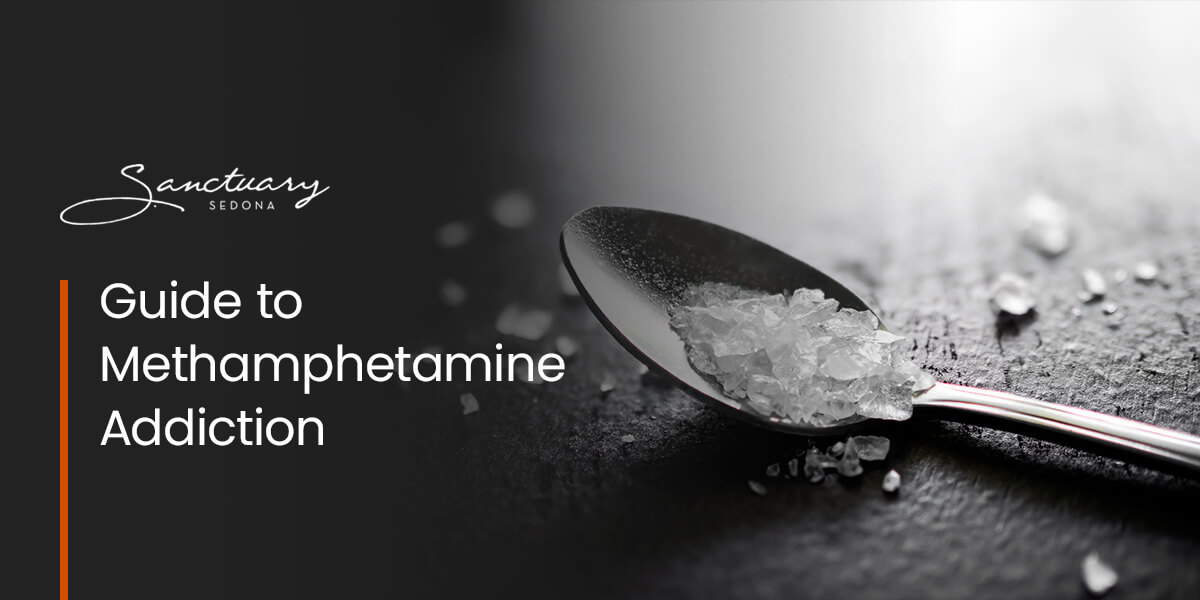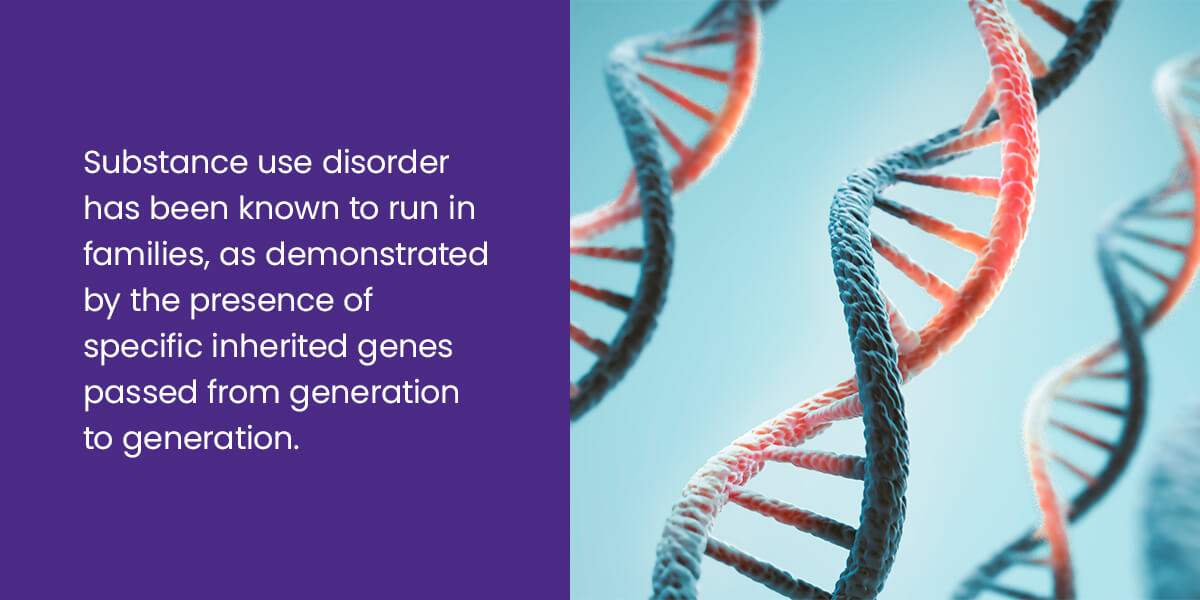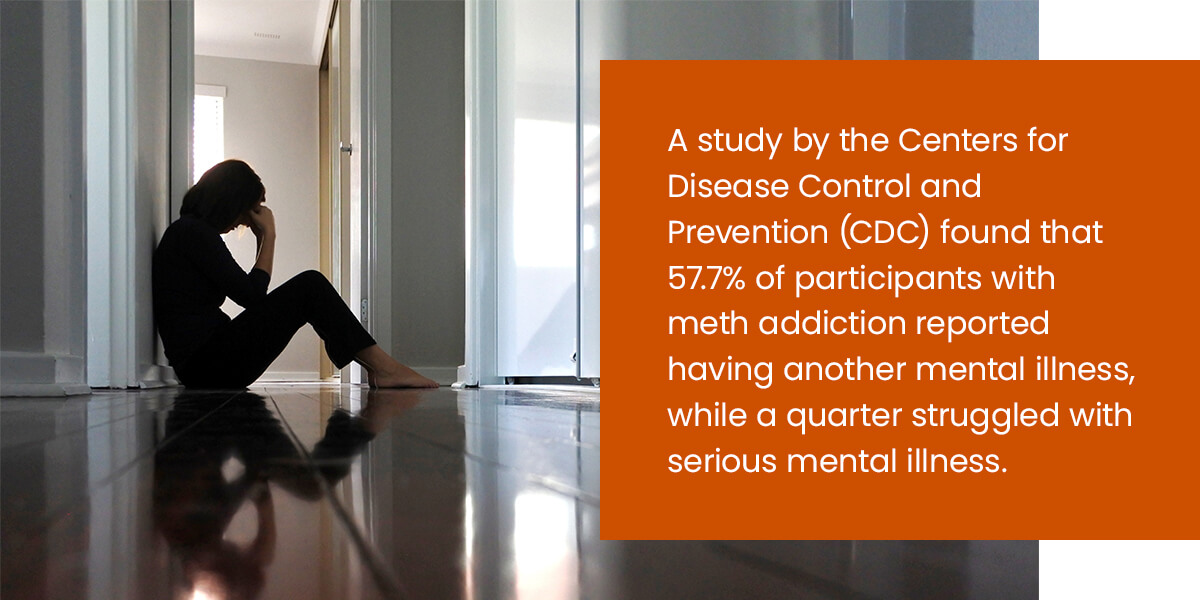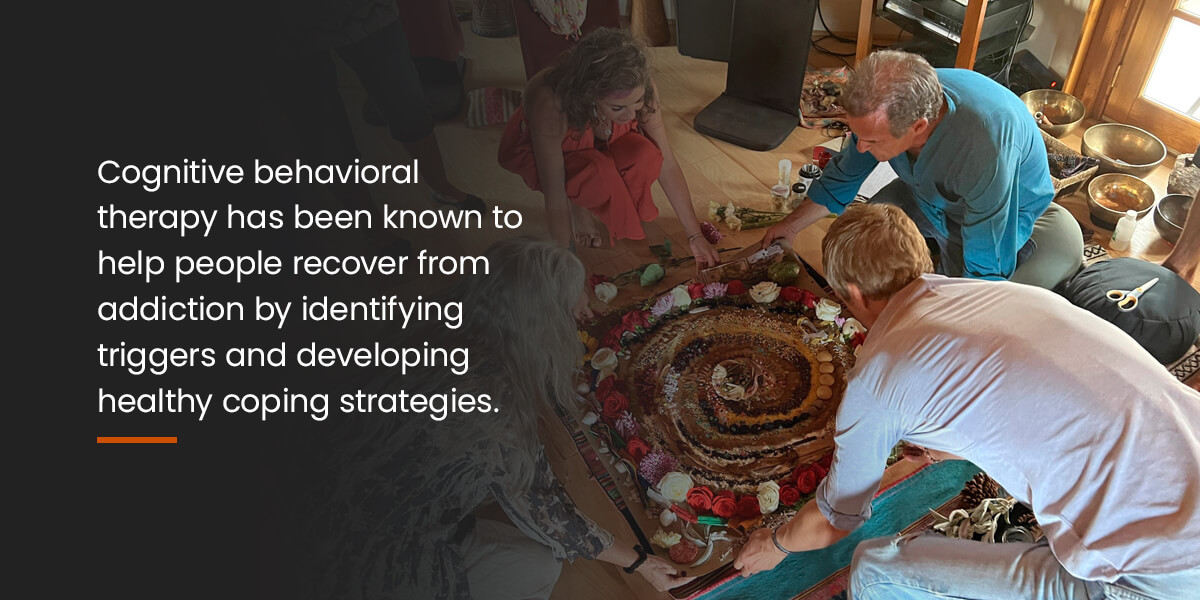Methamphetamine is an illicit substance that’s easy to become addicted to. Approximately 1.5 million people in the U.S. struggle with meth addiction, and it can wreak havoc on a person’s entire livelihood, including their social, mental and physical health.
Fortunately, several treatment options can help if you or someone you know is battling substance use disorder. Professionals can help you safely detox and get on the path to recovery. Learn about the warning signs and symptoms of meth addiction, risk factors and available treatment options.
Signs and Symptoms of Meth Addiction
The signs and symptoms of meth use will vary from person to person, depending on several factors. These factors include the length of time the person has been using the drug, the frequency of use and the amount they’ve taken at any time.
Because of its highly addictive nature and the danger it poses, methamphetamines can be challenging to stop without professional help. If you’re unsure whether someone you know is battling meth addiction, watch for the following potential warning signs.
Behavioral Symptoms
A person with meth addiction can display drastic behavioral changes, like:
- Erratic and belligerent behaviors
- Change in peer group
- Diminished participation in previously enjoyed activities
- Deceptive behaviors and stealing
- Talking incessantly or not at all
- Social withdrawal or isolation
- Alternating between bursts of hyperactivity and bouts of lethargy
- Unprovoked aggressive outbursts
- Frequent absences from work
- Drop in work performance
- Lack of adhering to daily responsibilities
Physical Symptoms
The physical effects of chronic methamphetamine use can be extremely damaging and might include:
- Loss of appetite and subsequent significant weight loss
- Significant and noticeable change in overall physical appearance
- Increase in body temperature
- Oscillating between insomnia and hypersomnia
- Decayed teeth
- Development of skin sores
- Acne
- Increased blood pressure
- Accelerated heart rate
- Lacking proper hygiene
- Facial tics
- Muscle spasms or uncontrollable twitching and tremors
Cognitive Symptoms
Meth can significantly impact the brain’s chemistry, causing effects like:
- Hallucinations
- Memory loss
- Excessive confusion
- Delusions
- Psychosis
- Disorientation
- Impaired judgment
- Paranoia
- Loss of inhibition
- Learning difficulties
Psychosocial Symptoms
The psychosocial effects of meth use might include:
- Oscillating episodes of depression and hypomania
- Emotional dysregulation
- Excessive irritability
- Unprovoked and irrational feelings of fear
- Excessive agitation
- Deterioration of self-esteem
- Suicidal ideation
- Declined interest in previously enjoyed activities
Causes and Risk Factors of Meth Addiction
Mental health professionals and addiction specialists have found several factors that can influence the development of substance use disorders like meth addiction. From genetics to environmental stressors, here are the potential causes and risk factors they’ve determined:
Genetics
Much research has been conducted on the role genetics plays in substance use, including methamphetamines. Substance use disorder has been known to run in families, as demonstrated by the presence of specific inherited genes passed from generation to generation. Those with a first-degree biological relative with a history of chemical dependency are especially vulnerable to sharing this trait at some point in their lives.
Genetics may also play a role in how methamphetamines impact an individual who uses them. A genetic variation can mean some people experience more severe side effects from meth use, including psychosis.
Our environment can also cause changes to our genes, referred to as epigenetic alterations. For instance, when under significant stress, our genes can link to variations associated with addiction development and even stress-induced relapse when in addiction recovery.
Environmental Factors
A person’s experiences within their environment can play a role in addiction. For instance, those who grow up in environments where drug use is widespread can be more likely to engage in substances themselves than those who have never been exposed.
Additionally, people with a history of childhood abuse or neglect are at a higher risk of developing an addiction to various substances, including meth. They may do this in an attempt to numb the emotional pain they feel as a result of their traumatic experiences, especially without proper support or coping skills in place.
Further, when stressors like job loss, academic pressure or a death in the family occur, many may try to self-medicate their stress with substances like meth. Living in poverty or a high-crime area can also be a risk factor for developing methamphetamine addiction. Those who fall into the cycle may do so as a means to “escape” their current situation by trying to silence their depression and anxiety.
The Drug Itself
Aside from the complex issues around genetics and stressors, meth is also just a highly addictive substance. When first used, it forces the brain to release excessive amounts of dopamine, the chemical that maintains and controls our sense of pleasure and motivation. The high fades quickly, which can make it incredibly reinforcing and motivate persistent drug use behavior.
Many people who use meth take it over a period of several days, allowing them to stay high throughout that duration. This use pattern often causes the development of tolerance, as the person will require a higher and higher dose to achieve the same effects.
The drug’s stimulant effects can quickly lead to an addiction. It can be difficult for individuals to feel happy when attempting to quit, and withdrawal symptoms like anxiety, fatigue, insomnia and depression can occur as the drug wears off. The debilitating nature of the drug and its withdrawal reinforces a cycle of addiction. When the brain’s reward system becomes dependent on the drug, the fear of withdrawal and cravings can quickly take over a person’s life.
Effects of a Meth Addiction on Your Life and Those Around You
The prolonged misuse of methamphetamine can significantly impact a person’s life and the lives of those around them. That’s why it’s beneficial to seek treatment to put an end to the cycle. The following effects of methamphetamine addiction can occur without professional intervention:
- Job loss or chronic unemployment
- Financial strife
- Homelessness
- Damaged relationships
- Marital discord and divorce
- Deteriorated physical appearance
- Family problems
- Legal issues
- A diminished sense of self-worth
- Contraction of viruses, such as HIV/AIDS or hepatitis C
- Irreversible cognitive impairment
- Weakening of or permanent damage to one’s immune system
- Overall deterioration of one’s physical and mental health
- Overdose
- Suicidal thoughts and behaviors
Meth withdrawal symptoms can be highly intense, depending on the length of time the person has been using it. These effects can include fatigue, anxiety, mood swings and dehydration.
People who inject meth are also at an increased risk of contracting diseases like HIV and hepatitis by sharing needles. Further, the effects on the heart can overwhelm the body and lead to seizures, heart attack or a potentially life-threatening overdose.
Meth Addiction and Co-Occurring Disorders
Methamphetamine addiction and other mental health disorders typically co-occur. These mental health conditions might include depression or anxiety that underlies or worsens drug use. A study by the Centers for Disease Control and Prevention (CDC) found that 57.7% of participants with meth addiction reported having another mental illness, while a quarter struggled with serious mental illness.
The reasons these issues often co-occur are because:
- Methamphetamines can cause people to experience one or more symptoms of mental illness.
- Mental health conditions can often lead to substance use, as many people might use them to self-medicate.
- Mental illness and substance use disorders often share underlying causes, like trauma, genetics and stress.
Co-occurring disorders with meth addiction can include:
- Depressive disorders
- Bipolar disorder
- Anxiety disorders
- Attention-deficit/hyperactivity disorder (ADHD)
- Post-traumatic stress disorder (PTSD)
- Borderline personality disorder
- Other substance use disorders
The symptoms of meth addiction can exacerbate symptoms of mental health conditions like anxiety and depression. These co-occurring disorders can also complicate a person’s ability to get help and stay sober. Others might believe they can block troublesome psychiatric symptoms by using meth, and it is this cycle that makes it difficult to stop using the drug.
That’s why many addiction treatment centers also focus on underlying mental health conditions through dual diagnosis treatment. Most addiction specialists believe that to treat the addiction, you must treat the entire person.
Can You Recover From Meth Addiction?
While meth addiction is a complex condition, know recovery is possible. With the help of health professionals and addiction specialists, you can begin the journey toward a healthier, happier way of life without substances.
Your treatment team will determine the types of services you receive and adjust as needed. A holistic approach of medicine adjustments, supplements, dual-diagnosis treatment and therapies can help you recover from meth addiction.
Available Meth Addiction Treatment Options
Meth addiction treatment options can include:
1. Detox Protocol
Since methamphetamines can drastically alter the brain’s chemicals, a detox protocol administered by health professionals is essential. It’s crucial not to quit meth on your own or abruptly, as this can cause severe and dangerous side effects.
Professionals can help restore the brain to its original chemistry. This way, you can comfortably and safely withdraw from substances and begin the recovery journey.
2. Exercise and Supplements
Supplements like IV therapy, nutrition and exercise are also used at this stage. Long periods of substance use can weaken the body and exhaust it of essential nutrients. At a meth addiction treatment center, you can receive nutritious, gourmet meals and participate in exercises that support your brain and body health.
3. Clinically Evidenced Therapies
You can expect daily therapy sessions with licensed psychologists and clinicians at most addiction treatment centers. Group therapy is another helpful aspect of meth addiction treatment, as you can share your struggles and support others facing a similar situation.
One-on-one sessions allow you to discuss your treatment progress, address any concerns and process the various feelings you may experience.
A few clinical evidence therapies that can help include:
- Cognitive behavioral therapy
- Gestalt
- Family and couples therapy
- Acceptance commitment therapy
- Eye movement desensitization and reprocessing (EMDR)
4. Alternative Therapies
Your personalized schedule in treatment might also include powerful alternative therapies to help you overcome addiction, including:
- Breathwork
- Bodywork
- Nature ecotherapy
- Expressive art therapies
- Yoga
- Sound healing therapy
- Meditation
- Energy medicine
- Energy psychology
5. Aftercare
Aftercare is an essential part of meth addiction treatment. This stage allows you to implement the skills you’ve learned from professionals and your peers in everyday life.
This way, you can work toward preventing relapse and maintaining those healthy coping skills and activities. Many people in recovery benefit from counseling and other forms of aftercare, and most treatment centers provide life-long resources and care to keep you on a healthy track. You’ll learn to address triggers that may occur and overcome setbacks with help on your side.
Meth Addiction Treatment FAQs
A few common questions we receive about meth addiction and treatment include:
1. How Can I Treat Meth Addiction Naturally?
The Sanctuary at Sedona offers a holistic, natural approach to addiction recovery, including nutritious foods, exercise and therapies. Alternative practices like breathwork, yoga and meditation can also help you improve your mind and body without the use of medicines.
Further, cognitive behavioral therapy has been known to help people recover from addiction by identifying triggers and developing healthy coping strategies. While some may require doctor-prescribed medications, many who enter our treatment program find therapies that can help.
2. What Are the Signs of Meth Overdose?
In 2020, around 23,837 people died from overdoses involving psychostimulants like meth. Understand the signs of an overdose if you or someone you know is struggling with meth addiction:
- Trouble breathing
- High or low blood pressure
- Signs of a heart attack or stroke, such as chest pain or confusion
- Seizures
- Kidney failure, which might cause symptoms such as urinating less or very dark urine
- Intense stomach pain
- A high body temperature
- Changes in personality or alertness
- Loss of consciousness
- Intensely hyper or aggressive behavior
- Paranoia
If you or a loved one exhibits the above signs, seek emergency medical services immediately.
3. How Can I Help a Loved One With a Meth Addiction?
It can be incredibly difficult to know that someone you care about is struggling with meth addiction. The best thing you can do is provide empathy and listen to their concerns. Maintaining a comforting tone as you voice your worries is also helpful.
Spending time learning about the effects of methamphetamine addiction can also help you express your concerns so they may be encouraged to receive help. Ensure you do not enable your loved one’s behaviors. Setting boundaries and gently encouraging them can go a long way in their recovery.
Offering your assistance to help them get to treatment appointments can also help. You might choose to become part of their support system as they progress through their treatment.
Get Treatment for Methamphetamine Addiction at The Sanctuary
Meth addiction is a complex condition that can lead to social, financial, legal and health consequences. At The Sanctuary, we can help you overcome this cycle and get your life back on track.
Know you are not alone in your recovery journey. Our compassionate team of addiction specialists and health professionals will help you every step of the way. Through integrative, science-backed treatment plans, you can overcome addiction and regain your health.
To learn more about our treatment process, contact us today.





